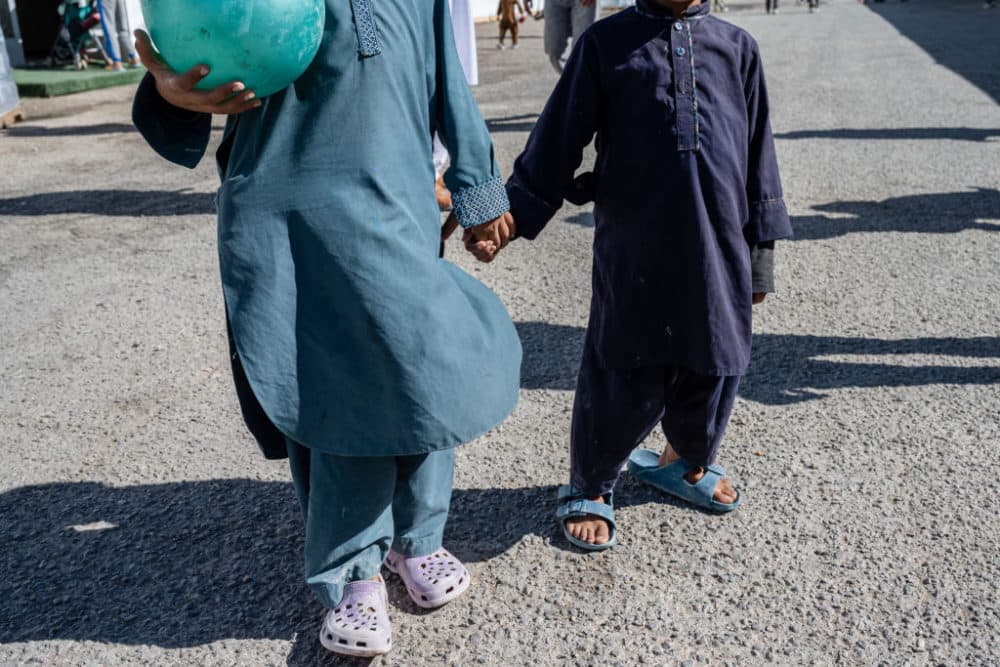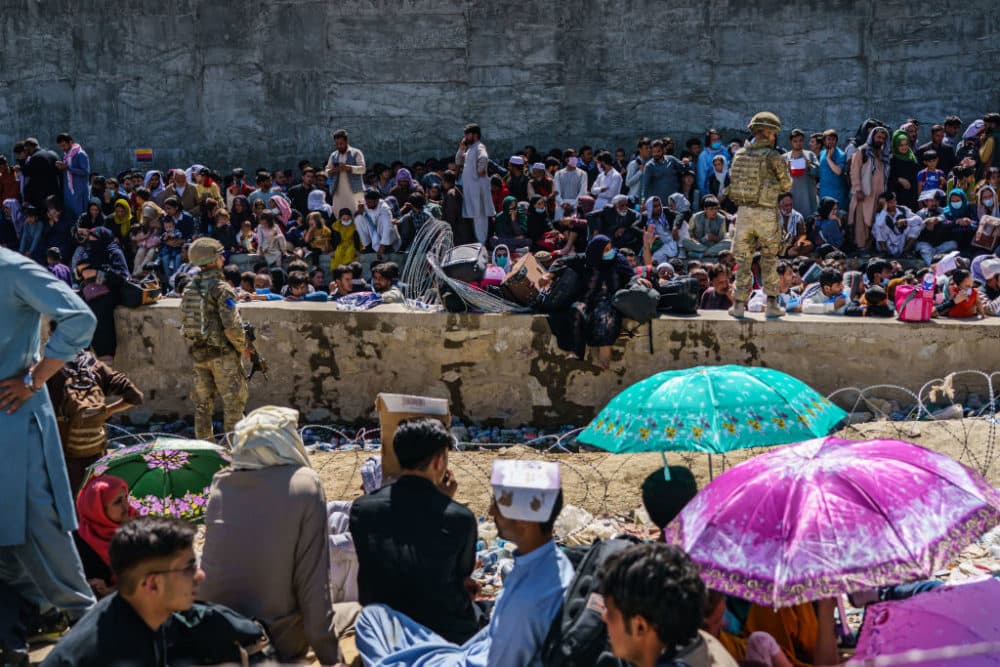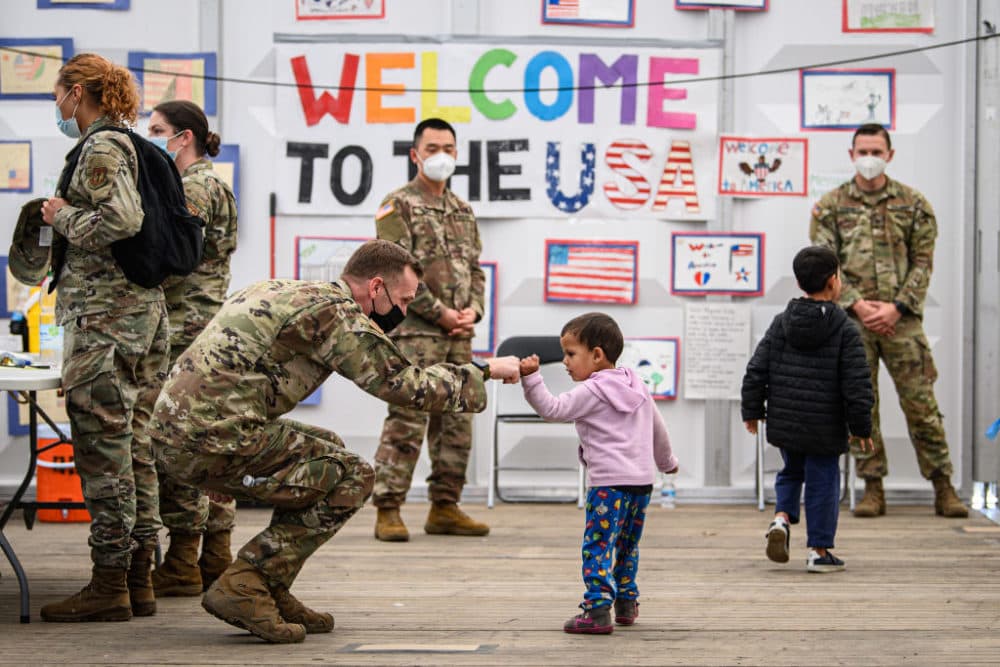Advertisement
Commentary
I've been trying to explain America to Afghan refugees. It's not going well

Like so many Americans in August of 2021, I was heartbroken by reports and images of families desperate to flee Afghanistan. Beyond making modest financial donations, I wanted to be of material help, and volunteered for one of the hundreds of “Circles of Care” run by organizations like the Catholic Charities and the Hebrew Immigrant Aid Society.
In short order, we were assigned to work with three evacuees. Our initial meeting was an awkward gathering in a hotel suite where, eager to show appreciation and hospitality, the young men served me tea and we repeatedly exchanged thank yous, the only words we all understood. But over the course of several months, as their English improved, and with it, their confidence, we’ve become much more comfortable together.
Lately, I’ve been trying to explain America to them. It’s not going well.
But the obstacle isn’t language. It’s the fundamental absence of logic in so many aspects of life in the United States.
Let’s start with the bitterly contentious low-hanging fruit: health insurance. When these young men left Fort Dix, in New Jersey, and were temporarily placed in a Holyoke motel, Catholic Charities provided them with healthcare from a Springfield clinic. But when they moved to an apartment in Amherst, 15 miles away, they discovered that no local clinic accepted their current plan.

We sprang into action. With the help of another volunteer, they were able to enroll in a MassHealth plan, one accepted by a healthcare practice a short bus ride away. That was great, until one of them got a toothache. Only then did we discover that the only dentist who accepted their new plan was 30 miles away — a significant challenge, given that they don’t have a car.
These three young men are not lazy. They are not people who, to quote the presidential candidate Mitt Romney (not the last GOP-defender-of-democracy Sen. Mitt Romney): “believe that they are victims, who believe the government has a responsibility to care for them, who believe that they are entitled to healthcare, to food, to housing, to you-name-it.” One works seven days a week at two different minimum wage jobs; one works for minimum wage a mere five days weekly while he looks for another part-time job; and the third is a high school student who only works on Saturday and Sunday.
But thanks to the sprawling, wasteful abomination that is our health care system, instead of being able to walk to the dentist down the block, the young man working seven days a week and a volunteer with a car had to both take time off from their jobs and burn through several gallons of gas to get the sore tooth addressed.
Advertisement
[T]he obstacle isn’t language. It’s the fundamental absence of logic in so many aspects of life in the United States.
Despite the fact that all three of these young men are taking English classes and making remarkable progress, fluency in our language will not help them understand much of what they need to master. Only time and a willingness to abandon rationality will.
Exhibit B: Credit. The oldest of the three — I’ll call him Hamza to protect his identity (his family remains in Afghanistan, where they are members of a persecuted minority) — is now understandably eager to pool money with the other two young men to buy a vehicle. Having seen the customers at the store where he works pay for groceries with their credit cards, he assumed he could whip one out to cover the cost of this purchase.
“Did you have a credit card in Afghanistan?” I asked.
“No,” he answered. Apparently only around 1% of Afghans do.
“Do you know what interest is?” I asked, vaguely familiar with the Muslim prohibition against charging interest.
“No,” he conceded.
I launched into a slow, careful explanation of interest rates. I used numbers and circles and arrows to illustrate how, at a 20% interest rate, he’d be paying back $120 for every $100 he borrowed, which is why trying to buy a car with a credit card was a very, very bad idea.

After many facial and spoken expressions of incredulity, he quite reasonably asked, “Could I get a credit card with an interest rate of less than 20%?”
“Not without a great credit rating,” I answered, immediately regretting it. Now I’d have to explain what that meant. Instead I promised I’d do a little research.
And I did. I discovered that there are “starter” credit cards designed for people with poor or no credit ratings.
“Here’s how it works,” I began on my next visit to him. “You give the credit card company $200 of your own money. Then you borrow your own money from the credit card company.” Despite Hamza’s quizzical look, I pushed on. “Then you pay back the money you just borrowed — your own money — at an interest rate of 13% to 23%. And after you’ve done that enough times, you get a credit rating … maybe.” It was impossible to end this explanation on a triumphant note.
Since then, we’ve had an almost surreal discussion about auto insurance (“collision will cover you if you hit a tree or another car, but for coverage if you collide with an animal, you need comprehensive”).
Our initial conversation about private universities started and ended with the phrase “$60,000 per year.” But our talk about why Hamza — who also works in a public university dining hall and is desperate to go to college — will have to pay “fees” that he probably can’t afford for classes, even though his “tuition” is waived, was equally mind-bending.
I’m deeply grateful that I won’t be around by the time he needs to learn about Medicare Parts A, B, C and D. But I’m also more conscious than ever of what sprawling, tenuous Rube Goldberg contraptions many of our most fundamental institutions and industries are. In our aversion to anything centralized or, heaven forbid, “socialized,” we’ve allowed the private sector’s quest for competitive advantage — and the government’s reactive attempts at catch up — to jointly create systems that are not just inefficient, but inexplicable.
We do need to make America great again, and people like these three clear-eyed, hard-working and optimistic young men can help us do it. But the work has to start by acknowledging that the system in the country that they’ve come to is, in different ways, as insane as the one they’ve fled.
